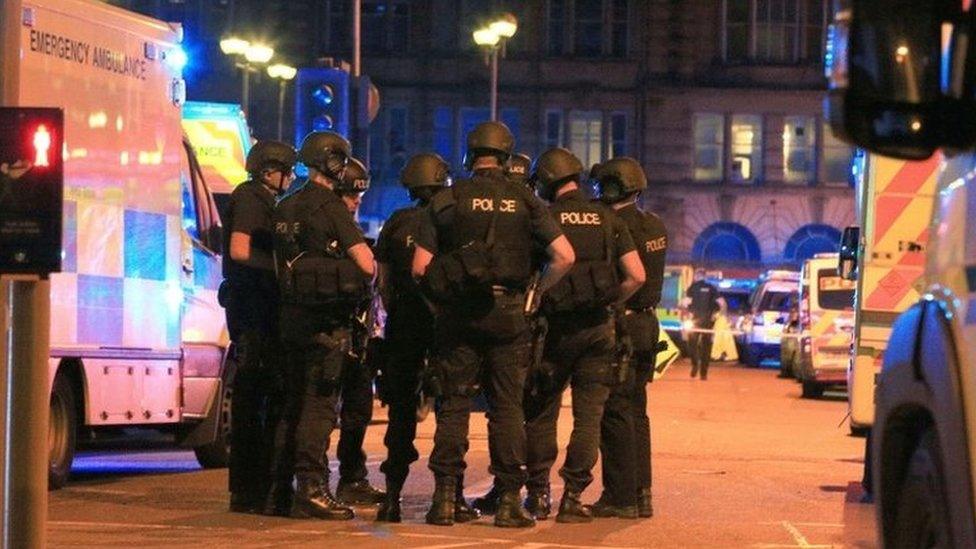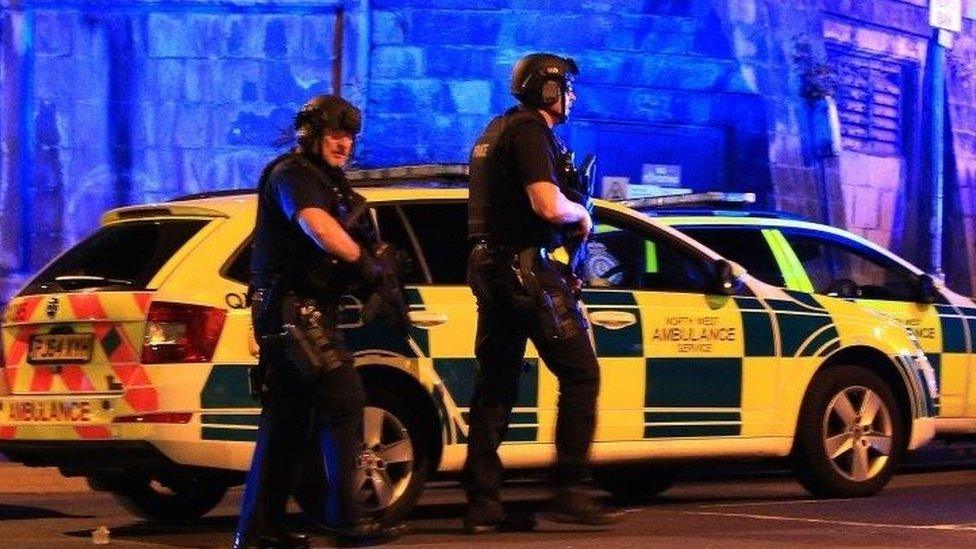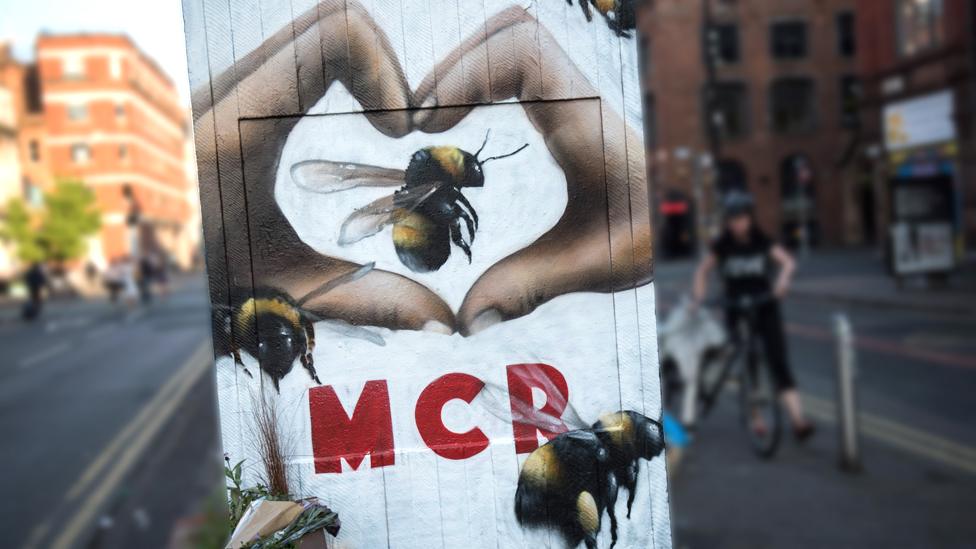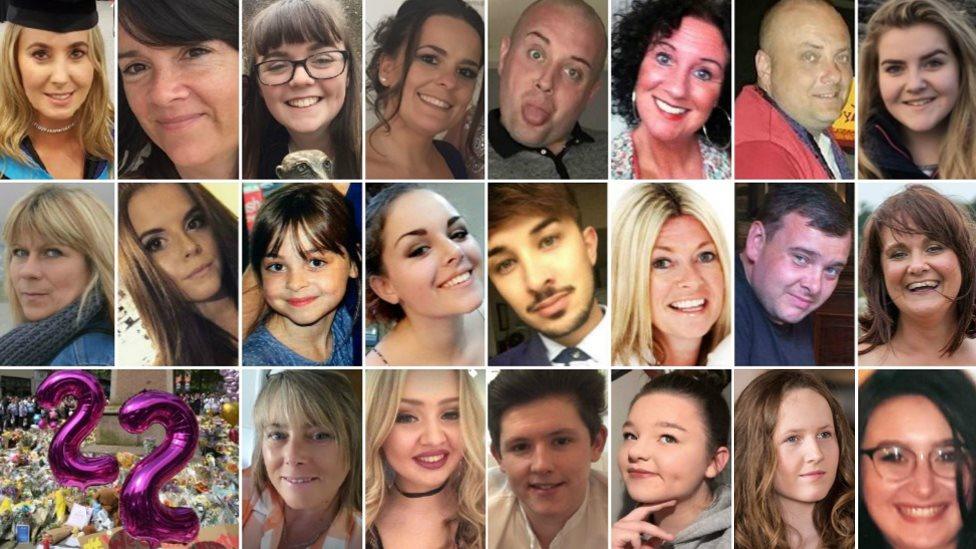Manchester Arena attack: Terrorism training exercise 'quite a disaster'
- Published

Twenty-two people were killed in the Manchester Arena blast
A counter-terrorism training drill a year before the Manchester Arena bomb was "quite a disaster", the head of the inquiry into the attack has suggested.
The inquiry into the May 2017 bombing heard a mock terrorist attack highlighted major communication issues between emergency services.
Communication "did not run smoothly" in the drill, a senior fire officer said.
Twenty two people died in the terror attack by Salman Abedi at the end of an Ariana Grande concert.

The public inquiry heard of failings in communication in an exercise a year before the arena bomb
Giving evidence to the public inquiry, Greater Manchester Fire and Rescue Service (GMFRS) station manager Michael Lawlor said 2016's Exercise Winchester Accord "did not run smoothly from the perspective of GMFRS and [North West Ambulance Service] NWAS".
Both were expecting a call from the Greater Manchester Police's (GMP) force duty officer or a tactical firearms commander to attend a pre-agreed forward control point and have an "over the bonnet" conversation about the risks involved in sending resources into the various zones.
Mr Lawlor said: "In the end the tactical firearms commander had to be directed to make contact with other agencies by the police exercise co-ordinator."
He said it resulted in a delay of an hour and a half in fire and ambulance deploying into the Trafford Centre.
Inquiry chairman Sir John Saunders said: "It was a bit of a disaster. You arrived an hour and a half late, so that's quite a disaster."
The fire officer replied: "It didn't unfold as we expected."
'Fundamental problems'
Mr Lawlor, a senior national interagency liaison officer who was based at GMP headquarters, said he and a colleague decided multi-agency briefing awareness sessions were needed so "all emergency responders are on the same page".
Sessions took place in January and February 2017, the inquiry heard.
Sir John said: "That seems a long time to be trying to sort out what were fundamental problems with Winchester Accord."
Mr Lawlor replied "co-ordinating diaries" of senior officers and developing and delivering training "takes some time... so in reality it doesn't happen quickly".
Sir John asked: "At a time when the terrorist threat was severe?"
Mr Lawlor said that "was the reality at that time".
The inquiry also heard communications between the three services was still a concern following a "table-top exercise", Exercise Hawk River, in March 2017, again involving a scenario with an armed terrorist.
A force duty officer on that exercise said they would not have time to "open up a tri-service call... giving a running commentary" during an incident because of their workload and the number of tasks they had to undertake.
The inquiry continues.

Why not follow BBC North West on Facebook, external, Twitter, external and Instagram, external? You can also send story ideas to northwest.newsonline@bbc.co.uk, external
Related topics
- Published3 February 2021

- Published2 February 2021

- Published1 February 2021

- Published1 February 2021

- Published26 January 2021

- Published3 November 2022

- Published7 September 2020
